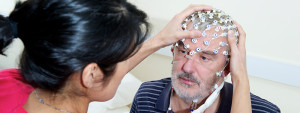 When graduate psychology students are exploring the career opportunities that are available in the vast and dynamic field, sleep psychology is often overlooked. However, the success of cognitive behavioral therapy has created a rapidly growing demand for sleep psychologists who are qualified in behavioral sleep medicine. As a highly unique clinical interdisciplinary specialty, the American Psychological Association (APA) defines sleep psychology as an “evidence-based psychological approach to the prevention and treatment of sleep disorders.”
When graduate psychology students are exploring the career opportunities that are available in the vast and dynamic field, sleep psychology is often overlooked. However, the success of cognitive behavioral therapy has created a rapidly growing demand for sleep psychologists who are qualified in behavioral sleep medicine. As a highly unique clinical interdisciplinary specialty, the American Psychological Association (APA) defines sleep psychology as an “evidence-based psychological approach to the prevention and treatment of sleep disorders.”
If you are interested in pursuing a rewarding career addressing the behavioral, cognitive, psychological, and physiological factors that trigger disordered sleep, read on to find a brief overview on what sleep psychologists do and how you can become one.
Sleep Psychologist Job Description
As highly trained clinical mental health professionals, sleep psychologists typically specialize in diagnosing and treating the presence of sleep disorders that are caused by underlying behavioral or psychological problems. Sleep psychologists seek to investigate the psychological root of the disorder that is interfering with a client’s sleep, such as bullying, divorce, death of a loved one, or another major life transition. In most cases, sleep psychologists are given the responsibility of finding intervention methods to address abnormal sleep patterns through a cognitive behavioral therapy approach. Due to their daily duties, it is common for sleep psychologists to work closely with pulmonologists, neurologists, psychiatrists, and other psychologists to treat all psychological concerns that are co-occurring with sleep disorders.
Major Sleep Problems Addressed by Sleep Psychologists
Depending on their individualized career interests, sleep psychologists are involved in addressing the full range of sleep problems for diverse populations across the age spectrum. Some of the most common sleep disorders treated by sleep psychologists include insomnia, obstructive or central sleep apnea, narcolepsy, restless leg syndrome, gastroesophageal reflux, periodic limb movement disorders, bruxism, and circadian rhythm disorders. Sleep psychologists are also involved in the diagnosis and treatment of parasomnias, such as nightmares, sleepwalking, night terrors, and bedwetting. Due to the rising high stress levels of our current times, sleep psychologists are also strongly concerned with addressing dependence on sleep medications or sedatives.
How to Become a Qualified Sleep Psychologist
Since this branch of psychology requires a broad understanding of disordered sleep, sleep physiology, sleep cycles, sleep deprivation, sleep regulation, cognitive behavioral interventions for sleep disorders, and treatment monitoring, advanced graduate education is a must. Typically, it is required that sleep psychologists have completed a Doctor of Philosophy (Ph.D.) in psychology or a Doctor of Psychology (Psy.D.) degree with specialized experience in behavioral sleep medicine. While there are currently no programs specifically related to sleep psychology, it is recommended that students apply to graduate schools that have AASM-accredited sleep programs, work alongside a faculty advisor with expertise in the sleep psychology field, and find a sleep-related clinical internship setting.
Overall, sleep psychologists are tremendously skilled professionals that are experts in the use of a wide range of sleep-specific behavioral, physical, psychological, and cognitive tests to assess the underlying problems associated with medical sleep-related disorders. As the demand for qualified sleep psychologists continues to grow faster than average, it is highly recommended that graduate psychology students consider joining the behavioral sleep medicine field. Once you receive thorough training in sleep psychology, you can find abundant career opportunities in sleep disorder centers as well as other primary care, medical, residential care, organizational, educational, and private practice settings.




